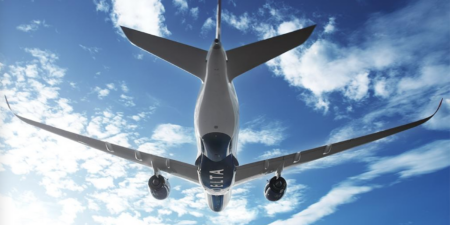With more than 70,000 jobs at risk in the aviation industry and its supply chains, the UK Government needs to provide targeted support now. This is on a par with the number of jobs lost during the closure of the coal mines in the early 1980s. To avoid the real risk of these businesses closing, there needs to be targeted support for the supply chain of airlines and the aviation sector as a whole.
While there remains significant disruption in international travel, this will change, and borders will reopen at some point, but the Government needs to act now if it is to achieve its aims for a post-Brexit Britain. To achieve the Government’s aim of an open nation post-Brexit, it is vital that there is affordable air travel to and from the UK. However, if the aviation sector contracts, which will happen should this number of jobs be lost, the supply of flights will reduce in not just the short term but also the medium and long term, raising the price of travel. In turn, this will become an impediment to the growth of international trade for the UK at a time when the country needs it.
While the Chancellor Rishi Sunak has suggested that there will be no significant targeted support going forward to help companies still significantly affected by the Covid-19 pandemic, the coming closure of the furlough scheme accompanied by the continued restrictions around international travel pose a problem for the whole aviation sector.
While the initial focus was around the ability of the airlines and travel companies to repay their customers for the cancelled holidays, and latterly on airlines reducing staffing levels, little has been said about the significant supply chains to this industry and the damage to the sector as a whole. While the airlines are, generally, large, well-funded companies, their supply chain is full of small owner-managed companies with limited financial resources.
These companies, from businesses which supply the spare parts, to the baggage handling companies, boutique businesses who supply the in-flight bags, meals, drinks and snacks, to the companies who supply the on-board payment services, and companies who rely on the airlines for overseas shipping, are struggling.
They often rely on one or two key contracts and, if they are aviation focused, are likely to have seen the revenue from these contracts fall to nearly nothing for a period of six months.
Without any targeted support for these businesses, there will be mass job losses when the furlough scheme ends.
A recent study estimated that over 30,000 jobs were at risk in the supply chain alone. When combined with those at risk in the airlines, the number is over 70,000. The Chancellor needs to think long and hard about the aviation industry and how it will be impacted both from a passenger and freight perspective if he does nothing.
Simon Rothenberg is a senior manager at Blick Rothenberg, a leading tax and advisory firm.





